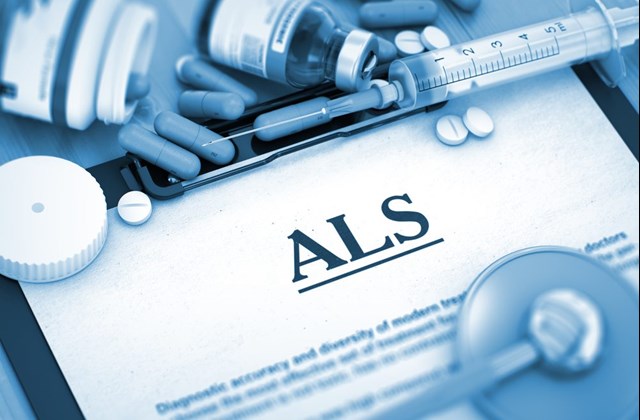
Image by Tashatuvango via Shutterstock.com
A trailblazing study by Israeli researchers suggests that intestinal microbes may have a direct effect on the course of amyotrophic lateral sclerosis (ALS), the incurable, fatal neurodegenerative disease also known as Lou Gehrig’s disease that affected physicist Stephen Hawking.
Published today in Nature, the study by researchers at the Weizmann Institute of Science revealed that the progression of an ALS-like disease in lab mice was slowed after the mice received certain strains of gut microbes or substances known to be secreted by these microbes.
Mounting evidence of the gut microbiome’s effect on brain function and disease is what prompted the Weizmann study. Further research must be done to determine whether regulating the gut microbiome might have the same effect in humans with ALS as it did with the mice.
“Our long-standing scientific and medical goal is to elucidate the impact of the microbiome on human health and disease, with the brain being a fascinating new frontier,” said Prof. Eran Elinav of the Weizmann’s immunology department.
Scientists in Elinav’s lab, working with colleagues in the lab of Prof. Eran Segal of the computer science and applied mathematics department, first demonstrated that the symptoms of an ALS-like disease in engineered mice worsened after these mice were given antibiotics to wipe out a substantial portion of their microbiome.
In addition, the scientists found that ALS-prone mice had a hard time surviving when grown in germ-free conditions where they cannot develop a gut microbiome at all.
Using advanced computational methods, the scientists identified 11 microbial strains that became altered in ALS-prone mice as the disease progressed or even before the mice developed overt symptoms.
The scientists isolated these microbial strains and gave them one by one to the ALS-prone mice, following antibiotic treatment to wipe out their microbiome. One particular strain, Akkermansia muciniphila, significantly slowed disease progression in the mice and prolonged their survival.
To reveal the mechanism by which Akkermansia may be producing its effect, the scientists examined thousands of small molecules secreted by the gut microbes. They zeroed in on one molecule called nicotinamide (NAM) and found that its levels in the blood and in the cerebrospinal fluid of ALS-prone mice were reduced following antibiotic treatment and increased after these mice were supplemented with Akkermansia, which can secrete nicotinamide.
To confirm that nicotinamide was indeed a microbiome-secreted molecule that could hinder the course of ALS, the scientists continuously infused the ALS-prone mice with nicotinamide. The clinical condition of these mice improved significantly. Brain studies showed that the substance seems to have improved the functioning of their motor neurons.
How this relates to human ALS patients
Then came a step that shows the most promise in relation to human ALS patients.
The researchers examined the microbiome and metabolite profiles of 37 people with ALS and compared them to those of family members sharing the same household.
And not only did they find that the gut microbiomes of ALS patients were distinct from healthy family members in composition and functional features, but they also found that microbial genes involved in the synthesis of nicotinamide were significantly suppressed in ALS patients.
An analysis of thousands of small molecules in the blood also revealed a distinct pattern in ALS patients as compared to controls. Here too, many of the intermediary molecules involved in nicotinamide synthesis were altered in the blood of ALS patients.
The researchers also found the levels of nicotinamide itself to be significantly reduced in both the blood and the brain of 60 human ALS patients as compared to controls. Moreover, there was a correlation between reduced nicotinamide levels and the degree of muscle weakness in the patients.
“These findings are only a first step toward achieving a comprehensive understanding of the potential impact of the microbiome on ALS,” Elinav said, “but they suggest that in the future, various means of altering the microbiome may be harnessed for developing new therapeutic options for ALS.”
The study was led by postdoctoral fellows Eran Blacher and Stavros Bashiardes, and by staff scientist Hagit Shapiro from Elinav’s lab. They collaborated with postdoctoral fellow Daphna Rothschild from Segal’s lab and with Dr. Marc Gotkine, head of the Motor Neuron Disease Clinic at Hadassah-Hebrew University Medical Center, as well as with other scientists from Weizmann, Hebrew University, Ben-Gurion University of the Negev, the University of Gothenburg in Sweden.
